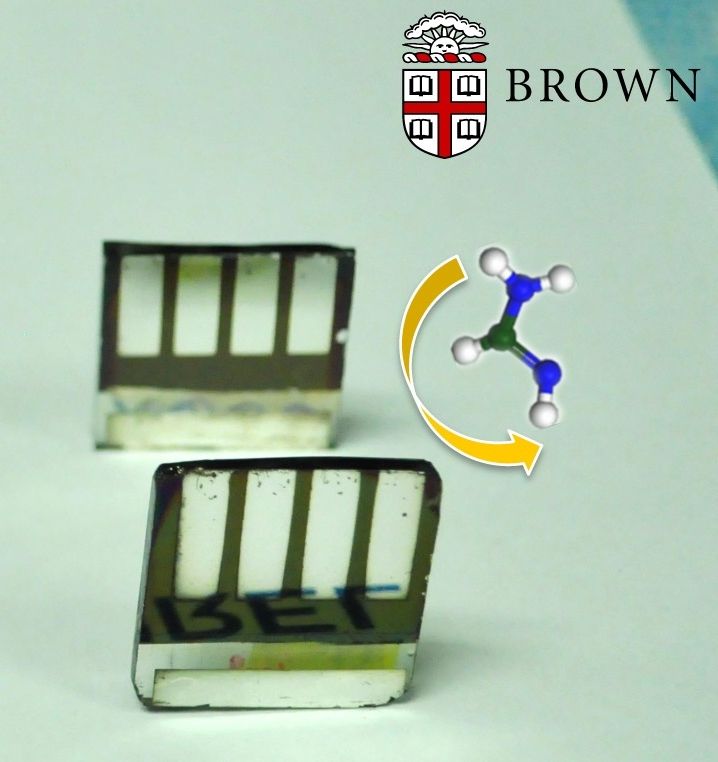Thin films of crystalline materials called perovskites provide a promising new way of making inexpensive and efficient solar cells. Now, an international team of researchers has shown a way of flipping a chemical switch that converts one type of perovskite into another—a type that has better thermal stability and is a better light absorber.
The study, by researchers from Brown University, the National Renewable Energy Laboratory (NREL) and the Chinese Academy of Sciences’ Qingdao Institute of Bioenergy and Bioprocess Technology published in the Journal of the American Chemical Society, could be one more step toward bringing perovskite solar cells to the mass market.
“We’ve demonstrated a new procedure for making solar cells that can be more stable at moderate temperatures than the perovskite solar cells that most people are making currently,” said Nitin Padture, professor in Brown’s School of Engineering, director of Brown’s Institute for Molecular and Nanoscale Innovation, and the senior co-author of the new paper. “The technique is simple and has the potential to be scaled up, which overcomes a real bottleneck in perovskite research at the moment.”
